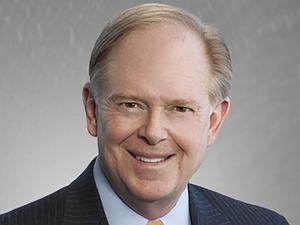
In June, Mayor Eric Johnson tweeted his reaction to the plummeting price of MiamiCoin, an initiative driven by his counterpart in Miami, Mayor Francis Suarez.
“Yikes. We’re gonna just sit tight here in Dallas until someone can explain what the crypto hype is all about. What is our city missing out on again?”
MiamiCoin — a municipal experiment that generated millions of dollars in new tax revenue for the city–had long been championed as proof of why cities should embrace crypto. As its price collapsed, the city didn’t lose out on existing revenue–but crypto’s reputation as a municipal panacea took a bruising.
Cutting through the noise to find substance is critical to answering the mayor’s question: What is our city missing out on? As the co-founder of America’s first operational federally-chartered crypto bank, I sit at the nexus of government and crypto. So I hope my perspective can lend a measured perspective to the discourse in North Texas.
When Mayor Johnson talks about “hype,” he’s referring to what he called a “municipal crypto movement” in a tweet the day prior. That movement culminated earlier this year as dozens of mayors from across the country converged on Miami to explore the intersection of cryptocurrency, the blockchain, and municipal government.
Representing all political stripes, they represented crypto’s emerging political capital. Few, if any, issues today can offer such widespread bipartisan appeal. Fewer still get more young people engaged in local politics. So it’s no surprise last May, the dozens of mayors, from municipalities of all sizes, of all political stripes, across America, in Miami were eager to tap into a movement that carries both of those characteristics while also being an economic engine for their local economy.
As North Texas looks to cut through the “‘crypto hype,” it’s important to recognize that there’s no one-size-fits-all solution to municipal use-cases of crypto and other digital assets. Some cities are exploring using NFTs (unique and traceable records of ownership stored on the blockchain) to digitally verify official documents. Others are hoping to leverage DAOs (transparent, digital voting-based organizations) to gauge public support for local initiatives. Others may still be interested in crypto for tracing public spending or collecting and distributing revenue to constituents. And one of the most promising use-cases for crypto is remittance payments–cutting down on the cost and time to transfer funds to loved ones back home.
As these technologies continue to evolve, it’s becoming clearer that many of the best use cases for digital assets have yet to be thought up or implemented. And as this great American municipal experiment unfolds, political leaders mustn’t extinguish innovation by prematurely implementing restrictions and regulations before we can see the full picture.
If North Texas can take one lesson from the Miami model, it’s this: Let the world know that your city’s doors are open to crypto. A public show of support–or even curiosity–is often enough to give crypto companies the confidence they need to participate in a municipal experiment.
But why now? The Federal Reserve Bank of Dallas just issued a new report showing that manufacturing activity contracted for the third straight month–so cultivating a burgeoning new industry can help soften the slowdown of traditional sectors. Upgrading our financial system will take serious work, which means serious economic potential and job creation. Lorie Logan, the new President and CEO of the Dallas Fed, recently touted that potential, saying that “increased competition that results from new forms of money and payments could lower costs, increase service availability, and stimulate further innovation.”
Digital asset developers and engineers must work alongside political leaders to realize crypto’s potential. In doing so, history will see them as the founders of America’s financial future. Dallas already has a business environment that’s proving attractive to crypto startups. As tech talent flocks to the city, North Texas is well-positioned to become a U.S. hub for innovation and high-paying jobs.
So despite all the “hype” around Miami becoming “America’s crypto capital,” the truth is that this isn’t some winner-takes-all race. The scale of upgrading and maintaining an entire, digital-asset-based financial system is too large to be contained by a single city, state, or even region. Still, early cities to adopt crypto-friendly policies will receive an outsized economic impact in jobs, tax revenue, rents, and more–a reward that Dallas can still reap.
The enduring benefits of crypto–and the more inclusive and efficient financial future it will create – can be harnessed by every municipality in the country. And eventually, it will; today’s “crypto mayors” will one day be “mayors.” Dallas shouldn’t be left behind.
Diogo Mónica is President and Co-Founder of Anchorage Digital, home to the first federally-chartered digital asset bank in the United States. After its latest Series D funding round, Anchorage was valued at over $3 billion.






